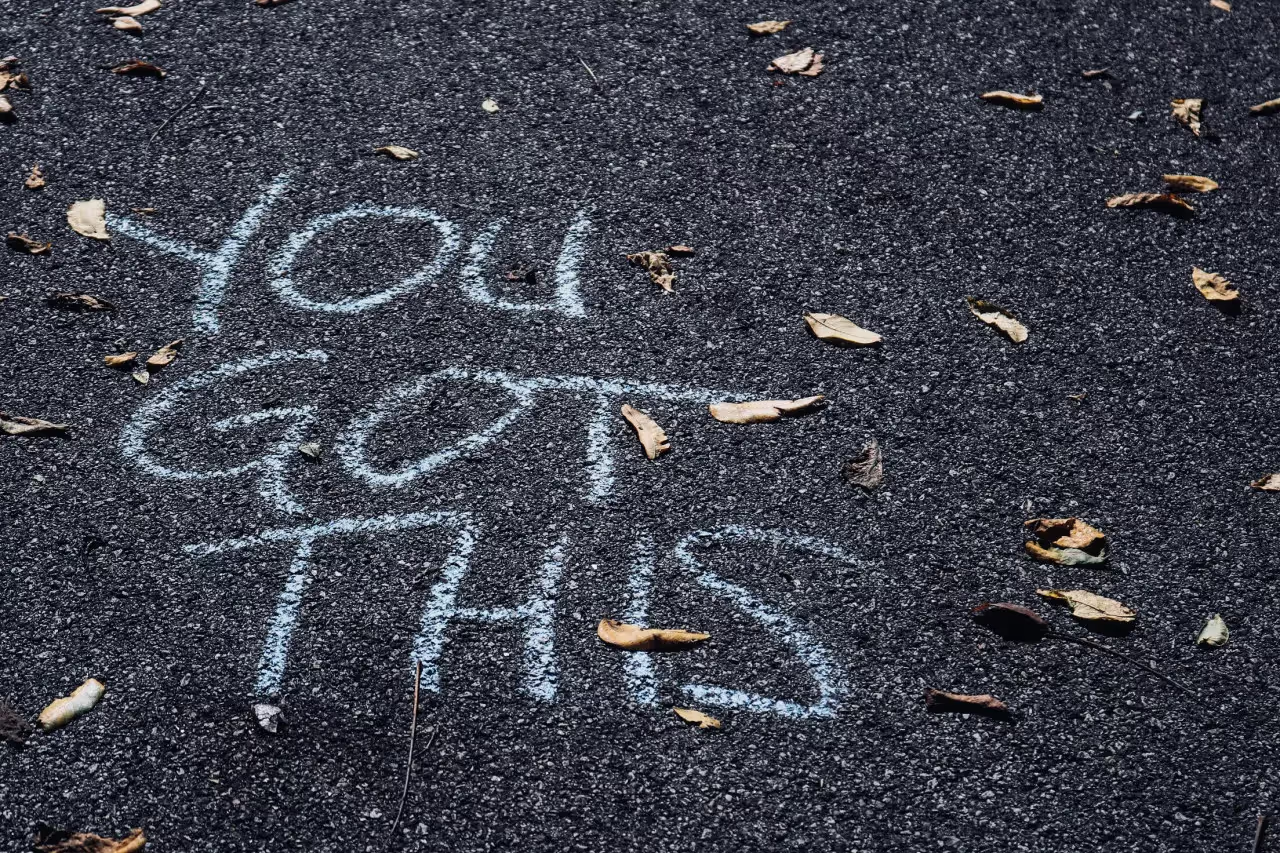Are you constantly flooded with thoughts and wondering about the best stress reliever activities for everyone? There are several stress reliever activities...

Are you constantly flooded with thoughts and wondering about the best stress reliever activities for everyone? There are several stress reliever activities that you can use. They are simple, and they do not require any special expertise. Almost all of them can be done while you are at home and are cost-effective. Below are the 13 best stress reliever activities for everyone that can help you find inner peace and calm if you are overwhelmed.
Best Stress Reliever Activities for Everyone [13 Tips]
Nutrition and stress are interlinked. On one end, stress can cause you to over or under-eat, while eating healthy can relieve stress. Eating healthy foods like veggies, unsaturated fats, and high-fiber foods will help your brain stay alert with a constant supply of nutrients needed to keep the body at optimum. It is essential to avoid foods with caffeine and high in sugar and calories, which can affect the body's ability to relieve stress.
Doing some sort of exercise is one of the best stress reliever activities. Getting active prompts the brain to release feel-good hormones (endorphins), which help soothe your mind and body. You can do several activities, from jogging, walking, skipping rope, swimming, hiking, cycling, and going to the gym.
Getting enough sleep is crucial to your body and mind, for in that moment, your body resets, and your brain reboots. Lack of enough or interrupted sleep only increases stress levels, for you wake up with low energy levels, low concentration, bad moods, and imbalance. However, getting enough sleep is among the best stress relievers, for the stress hormones are broken down, and the body resets; thus, you wake with a clear mind.
Nothing is soothing like taking a warm bath after a long stressful day. Taking a warm bath plays two crucial parts in relieving stress. A warm bath activates your parasympathetic nervous system, relaxing your mind and body and lowering stress levels. The other best stress relief is that taking a warm bath triggers the release of happy hormones (endorphins).
Mediation is one of the best stress relievers that has been intensely researched. It helps calm your mind by concentrating on what is present while allowing yourself to absorb all the positive emotions. Stress triggers your fight-or-flight response (sympathetic nervous system). On the flip side, meditation awakens your parasympathetic nervous system, which relaxes the body after stress episodes. You can start with a meditation on your own for ten minutes or download a meditation app.
Journaling is writing down all your thoughts and feelings. As a stress reliever, journaling can be done by jotting down what is causing you to get stressed and what you think you can and cannot do. The benefits of journaling are that it helps with clarity of the mind and serves as an escape. No formula is needed, and no specific book or time is required to journal. Take a pen and a spare book and write all that comes to mind.
Sometimes you get stressed simply by doubting and downgrading your abilities and capabilities. As a result, you impair the problem-solving and creativity skills needed to deal with the situation. However, self-affirmation (rational and positive thoughts) can serve as the best stress reliever. You need to learn the affirmations before to be ready when stressful situations come your way, whether in the office, with friends, or with family.
You are wondering how yoga is one of the best stress relievers for everyone, yet you hardly touch your toes. Yoga helps build emotional and physical endurance. Achieving flexibility, muscular strength, endurance, and balance takes work. However, in the process, you learn to concentrate on your breathing while connecting your mind, body, and soul. Also, you concentrate on the present and learn that you cannot control everything. It would be great if you could enroll in a beginner's class physically or virtually.
Do you realize that there are stressful situations that you deliberately get yourself into because you want to avoid conflict with your family, friends, or colleagues? Evaluate situations, and avoid overwhelming yourself (physically, emotionally, and financially). If you are in a position to help, do it gladly. But if you are not in a position to, also gladly decline. Your peace of mind is more valuable than being a people pleaser. And that is one of the best stress relievers for everyone; it cuts across all the grain. Therefore, let your no be a firm no, and yes, be a firm yes.
Aromatherapy is a stress-relieving method that uses scents. The scents come from essential oils extracted from plants and absorbed by the body through inhalation or skin pores. When inhaled, the essential oils send a message to your brain through the smell receptors. In the brain, the limbic system is activated, which has a significant role in your emotions. In addition, aromatherapy acts as a stress reliever, triggering the hypothalamus, which produces feel-good hormones like serotonin. Experts have recommended lavender oil as the best essential oil.

John Donne wrote, "No man is an island." Stress drowns you when you go through it alone. Most times, your friends and family might not know what you are going through since you meet them wearing a huge smile. Take that bold step and share what you are going through with them. Your family and friends should be your stress buffers. There is no shame in asking for help.
You can do a hobby in your spare time or something that brings you joy. Sometimes, your brain might need something exciting to concentrate on to deviate from stress. Hobbies help you relieve stress, for you have to be in the moment, which gives you eustress (positive stress). Also, hobbies can bring a lifestyle change. Examples of hobbies you can engage in:
Going through stressful situations is normal. However, when you have long periods or high-level stress, it is time to get help. Stress can affect your eating habits and sleep and ultimately affect your physical health in a way that impairs you from being productive at home or work. If this is the case, you need help combat stress's short-term and long-term effects. Our stress counselors are always ready and available to help you. They will walk with you until you overcome that part of your life. All you have to do is book a session.
There are stress reliever activities that can benefit everyone. Firstly, maintaining a healthy diet plays a significant role in reducing stress. By consuming nutritious foods, such as vegetables and high-fiber options, your body receives essential nutrients for optimal functioning. Secondly, regular exercise releases endorphins, known as feel-good hormones, promoting relaxation and a sense of well-being. Additionally, prioritizing adequate sleep allows your body and mind to reset, effectively breaking down stress hormones and promoting mental clarity. A warm bath activates your parasympathetic nervous system, leading to relaxation and the release of endorphins. Meditation and journaling provide you with effective techniques to calm the mind, shift focus to the present, and absorb positive emotions, thus alleviating stress.
Engaging in yoga improves your physical endurance and cultivates mindfulness and acceptance of situations beyond your control. Being assertive and setting boundaries helps you prevent overwhelming situations and preserves your peace of mind. Aromatherapy, particularly with lavender oil, can activate your limbic system and trigger the release of serotonin, contributing to stress relief. Seeking support from your family and friends is crucial in managing stress, as they can serve as valuable buffers and sources of assistance. Finally, adopting a new hobby can provide you with a positive distraction from stress and it will allow you to engage in activities that bring joy and fulfillment. In cases of chronic or severe stress, seeking help from a professional counselor or therapist can provide valuable support and guidance to overcome the effects of stress. By incorporating these stress reliever activities into your daily life, you can enhance your overall well-being and effectively manage stress levels.
https://nutrition.org/nutrition-and-stress-a-two-way-street/
https://www.apa.org/news/press/releases/stress/2013/sleep
https://www.everydayhealth.com/meditation/
https://www.ncbi.nlm.nih.gov/pmc/articles/PMC3641050/
https://www.webmd.com/fitness-exercise/features/yoga-for-stress-management
https://www.ncbi.nlm.nih.gov/pmc/articles/PMC5198031/
https://inspirseniorliving.com/senior-living-resources/stress-reducing-benefits-aromatherapy
https://rccaustin.com/blog/stress-management-the-role-of-family-and-friends
https://extension.usu.edu/mentalhealth/articles/how-hobbies-improve-mental-health
Focus on developing healthy coping strategies, setting realistic expectations for yourself, and practicing self-care regularly.
Life coaching is designed to help individuals identify their goals and take steps to reach them. A good coach will provide strategies, insights, and support throughout the process.
The choice between emotion-focused coping and solution-focused coping depends on the nature of the situation and whether it is within your control to change. If the situation is uncontrollable, emotion-focused coping may be more effective; if the situation can be changed or resolved, solution-focused coping might be more appropriate.
A life coaching course is an online program that helps individuals achieve their personal and professional goals through structured guidance and advice. It offers tools and strategies to help you identify areas of improvement, set clear objectives, and build a personalized plan for success.
Unlike therapy, which focuses on treating mental health issues, life coaching focuses on helping clients reach specific goals through self-development and growth.
You can adapt to stressors and new situations by looking at the big picture, focusing on the positive, reframing problems, and adjusting your standards when necessary. Setting reasonable standards is a surefire way to avoid unnecessary anxiety.